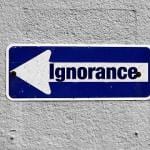It is the happy life that asks more of us than we realize we have and then surprises us by enabling it in us. Joan Chittister

Is there any human state or condition more elusive, or more difficult to define, than happiness? Aristotle, my top candidate for the greatest philosopher in the Western tradition, famously wrote that every human being above all wants to be happy—they just disagree about the definition of the term. As our culture generally defines happiness, it seems to be a lousy goal for a human life. It’s a feeling, an emotion, a “feel good” state that certainly does feel good when one is experiencing it, but its ephemeral nature makes it more of a tease than a legitimate life project.
But Aristotle’s word usually translated as “happiness” does not mean a feeling, smiling a lot, or anything of the sort. The word is eudaimonia, literally “good spiritedness,” which is best translated as “human flourishing” or “human fulfillment.” What people want, in other words, is not a life filled with nice feelings and lots of smiles and laughter. What they want is a life that means something. A lifelong process that over time turns one’s best potentials into actuality. A life, to borrow from Thoreau, which at the end will not leave one wishing that one had bothered to actually live rather than just mailing it in. That’s a program I can resonate with.
Of the many spiritual guides whose insights have influenced me over the past several years, none is more capable of reorienting me quickly and connecting me with what I know to be true in my deepest me than Joan Chittister. She tells the story of a Muslim elder known for his piety and virtue who, when asked how he become so holy, would always reply “I know what is in the Qur’an.” When he died, everyone raced to his hut to see what was in his copy of the holy book. The person who got there first reported to the rest that “What is in his Qur’an are notes on every page, two pressed flowers, and a letter from a friend.” Chittister comments that the sage had learned that “If the question is, what is really important in life?—the answer is only life itself, living it well, immersing it in beauty, love, and reflection.”
The three things found in the elder’s Qur’an are telling. The heavily annotated sacred text shows that he understood the importance of reflection, of hearing, reading, marking, and inwardly digesting what is read as well as what is experienced, as the Anglican Book of Common Prayer puts it. Reflection is part of a well-lived life, something that I was happy to rediscover in the first few weeks of sabbatical after several years of feeling obligated to squeeze reflection into the momentary cracks of a manic daily schedule.
Our contemporary world provides little support for such reflection; indeed, calls for such times of stepping back and considering who we are and why we are doing what we are doing are considered luxuries that only a privileged and pampered few have access to or can afford. But as Chittister notes, “we are meant to be about more than money and social craftiness. We are called to be more than simply passersby in life.”
The two pressed flowers in the elder’s Qur’an are reminders of beauty, calling us to remember that there is in life, deep down, an essential basic and beautiful goodness that redeems all the moments we ourselves overlay with greed or hatred or anger or self-centeredness. One morning in the midst of writing on our back yard deck, I heard the distinctive call of a cardinal, my favorite bird (next to penguins).  As I paused to listen, the cardinal flew in all of his scarlet glory to perch on the branch of a dead tree in our neighbor’s yard about fifteen feet from where I was sitting.
As I paused to listen, the cardinal flew in all of his scarlet glory to perch on the branch of a dead tree in our neighbor’s yard about fifteen feet from where I was sitting.
I thought for a moment about quietly switching my tablet to camera mode and trying to get a picture, but chose instead to simply be with my feathered friend. “Hey, dude,” I said—“looking good!” He sang his distinctive tune for me a couple more times, then darted off on his cardinal way. Moments of beauty such as that, even if only a minute or so long, go far toward sustaining my deep belief in the goodness of things, despite what appears to be daily and overwhelming evidence to the contrary. Such moments, Chittister writes, “are the heartbeat of the universe. They make us glad to be alive.”
The letter from a friend in the elder’s Qur’an is a reminder that we are all interconnected—in John Donne’s overworked phrase, none of us is an island. In my own natural solitude and introversion, this is a greater challenge to incorporate than reflection and beauty. Thank goodness for Jeanne who reminds me to stay in touch with a colleague and friend with whom I had a chance conversation, for my cousin who posted old family pictures on Facebook, and helping to plan the memorial service for a dear friend who died a year ago—these remind me that connectedness to others, even those whom I do not know but are sharing the human journey with me, is the most important part of a well-lived life.
What does any of this have to do with happiness? Most of us are familiar with the saying that “Life is what happens while you are making other plans”—I suggest that happiness is what happens as one seeks to live a flourishing and meaningful life. Happiness is best understood not as a life’s goal, but as the by-product of defining a purpose in life and pursuing it with all of your heart and mind. The Greek historian Herodotus once wrote that no person should be considered as happy in the eudaimonia sense until that person is dead. That’s because true happiness, the life of eudaimonia, is a process, not a goal, a process that stretches from birth to death. This involves reflection, beauty, other people, and so much more.
Happiness is what outlasts all the suffering in the world. It is the by-product of learning to live well, to choose well, to become whole, and to be everything we are meant to be—for our sake and for the sake of the rest of the world, as well.













